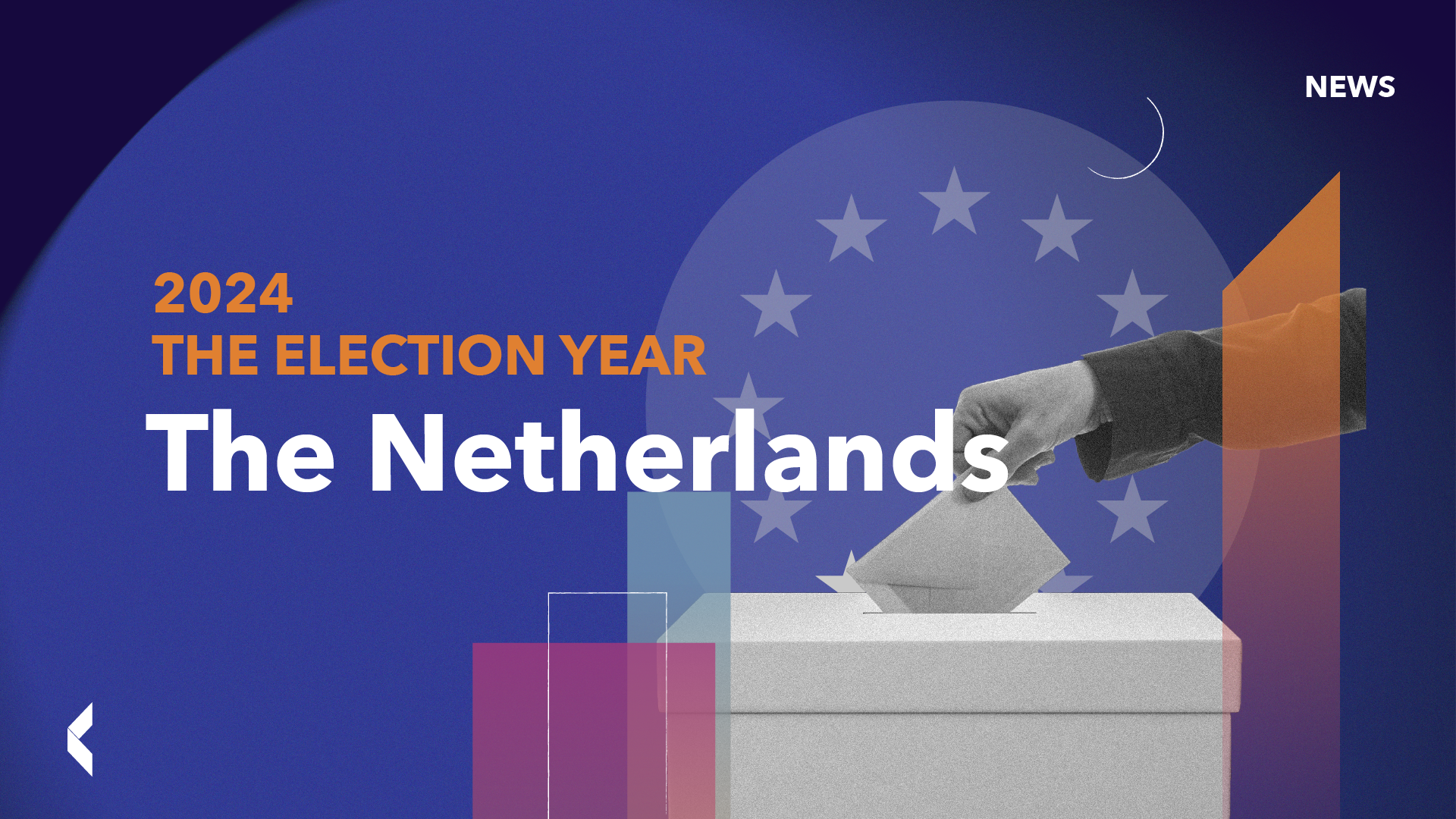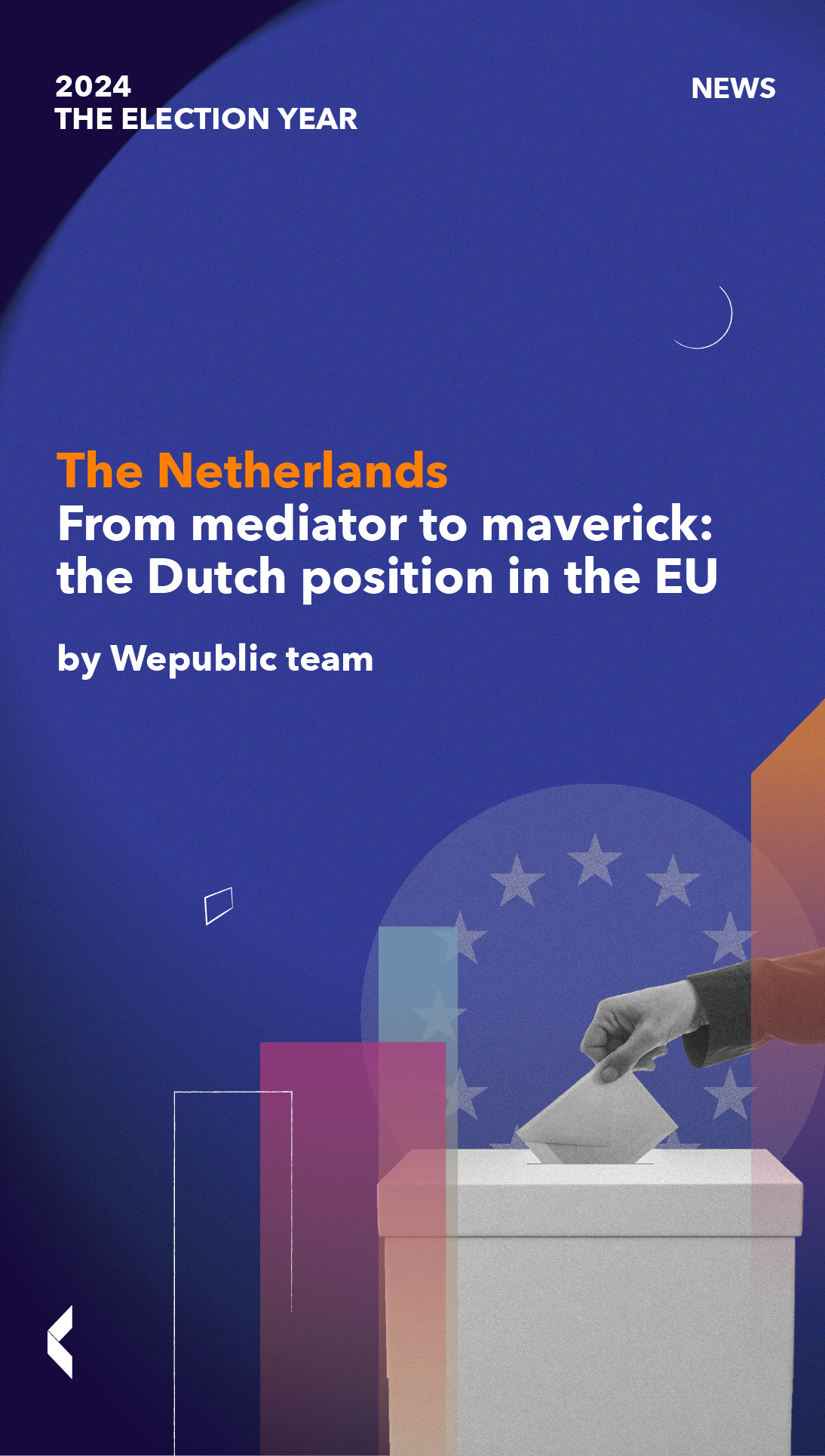In the wake of PVV’s recent electoral victory, Brussels anticipates the entrance of fresh Dutch protagonists. The Netherlands will soon bid farewell to longstanding Prime Minister Mark Rutte (Renew) and has welcomed back former European Commissioner Frans Timmermans (S&D) to its national political arena.
The coalition negotiations are in full swing, and the PVV is in the process of discussing a substantive agreement with the VVD (conservative liberals), BBB (agrarian, social-conservative) and NSC (centre-right). In mid-March, Geert Wilders stepped back from his goal to become Prime Minister, leaving the question yet unanswered of who will step into the European spotlight for the Netherlands.
However, there is no question that the issues that the far-right focuses on, such as concerns around migration and the impact of climate policies, will dominate the national debate as the European elections draw near. At the same time, polls suggest that support for EU membership in the Netherlands is still overwhelming and most Dutch voters also continue to favour a strong commitment for supporting Ukraine in its fight against Russian aggression. Against this backdrop, VVD and NSC have made clear that any new government should uphold foreign policy principles led by Mark Rutte’s previous coalition.
Chaos left and right
A recent poll taken by Ipsos Global shows that the EU elections can mirror the Netherlands’ national shift to the right. Of the 31 seats held by the Netherlands in the European Parliament, the PVV is projected to get the most seats, totalling 9. The PVV is followed by the recently established alliance of the Greens and the labour party (GroenLinks-PvdA; together representing 6 seats) and the conservative-liberal VVD (5 seats). If the above results are translated into the political groups, the far-right group Identity and Democracy (I&D) gains 9 seats and is projected to be the biggest winner in the Netherlands.
It remains to be seen who will occupy the PVV’s seats in the EP, as the party has yet to publish its electoral list. The previous former PVV Member of Parliament was Marcel de Graaff, who left the PVV in 2022 after two years for another far-right party (also part of the I&D group – Forum for Democracy). However, De Graaff was later suspended from the group following his vote against a motion condemning Russia’s invasion of Ukraine.
Meanwhile, on the left, GroenLinks (GreenLeft) and the PvdA (Labour Party) are now taking their net alliance at national level to Brussels with a shared ballot and election program titled ‘Stronger with each other.’ However, it is uncertain if this slogan will truly reflect their political unity. Post-elections, they will part ways into separate European groups—GreenLeft with The Greens and Labour with S&D. This split may dilute their united front against the rising tide of Europe’s right-wing parties.
Beyond the polls: the most important themes in the Dutch EU Debate
As the European elections draw near, two pressing issues emerge at the forefront of the Dutch political arena: the agricultural nitrogen crisis, and migration. Both topics not only stir significant national debate but also echo the wider challenges the EU is facing.
For months, farmers in large parts of Europe have been protesting against the EU requirements to make agriculture more climate- and environmentally-friendly. These Europe-wide farmer protests kick-started in the Netherlands. They were sparked by the so-called ‘nitrogen crisis’ which can be traced back to the summer of 2019. During that year, the highest administrative court in the Netherlands ruled that the nitrogen permits system was failing to prevent emissions harming protected nature reserves, linked to the EU’s Birds and Habitats Directives. Consequently, the government was advised to take ‘drastic measures’ to reduce emissions of nitrogen, including shutting down or shrinking livestock farms. This upset many farmers who did not see this coming, causing large protests, with tractors blocking highways and farmers threatening the Minister for nature and nitrogen by coming to her home.
Moreover, migration hit a boiling point in the Netherlands in July 2023. Cuts in the system and general housing shortages led to desperate situations at the main registration centre for asylum seekers.
These crises have become a battleground for political ideologies, with right-wing factions, notably the PVV and the BBB (Farmer-Citizen Movement), leveraging these issues to challenge EU directives. They argue for national sovereignty over EU regulations. In contrast, the GreenLeft/Labour alliance, through figures like Bas Eickhout, champions more ambitious EU-wide environmental and agricultural standards as a solution, highlighting the difference in approach between the two political blocks to these critical challenges.
The way ahead: current MEPs in the upcoming election
Dutch MEPs Bart Groothuis (Renew), Thijs Reuten (S&D), and Sophie in ‘t Veld (Renew) echo a collective sentiment—Europe is at a critical juncture. The upcoming elections are not just about representation; they are also about the Dutch position in the EU and towards its shared and pivotal challenges.
However, current polls predict a significant shift – propelling the more Eurosceptic PVV from zero representation to potentially the largest Dutch delegation in the European Parliament. The Netherlands, historically a mediator and part of the ‘frugal four’ within the EU, now grapples with its own identity. With the election lists being finalised, we are left waiting to see who will emerge as the voice of the Netherlands in Brussels.
The Dutch government – in a nutshell
Monarch: King Willem-Alexander
To know more:
- Country profile of Netherlands, on the EU website
- Weekly POLITICO polling – Netherlands voting intention

